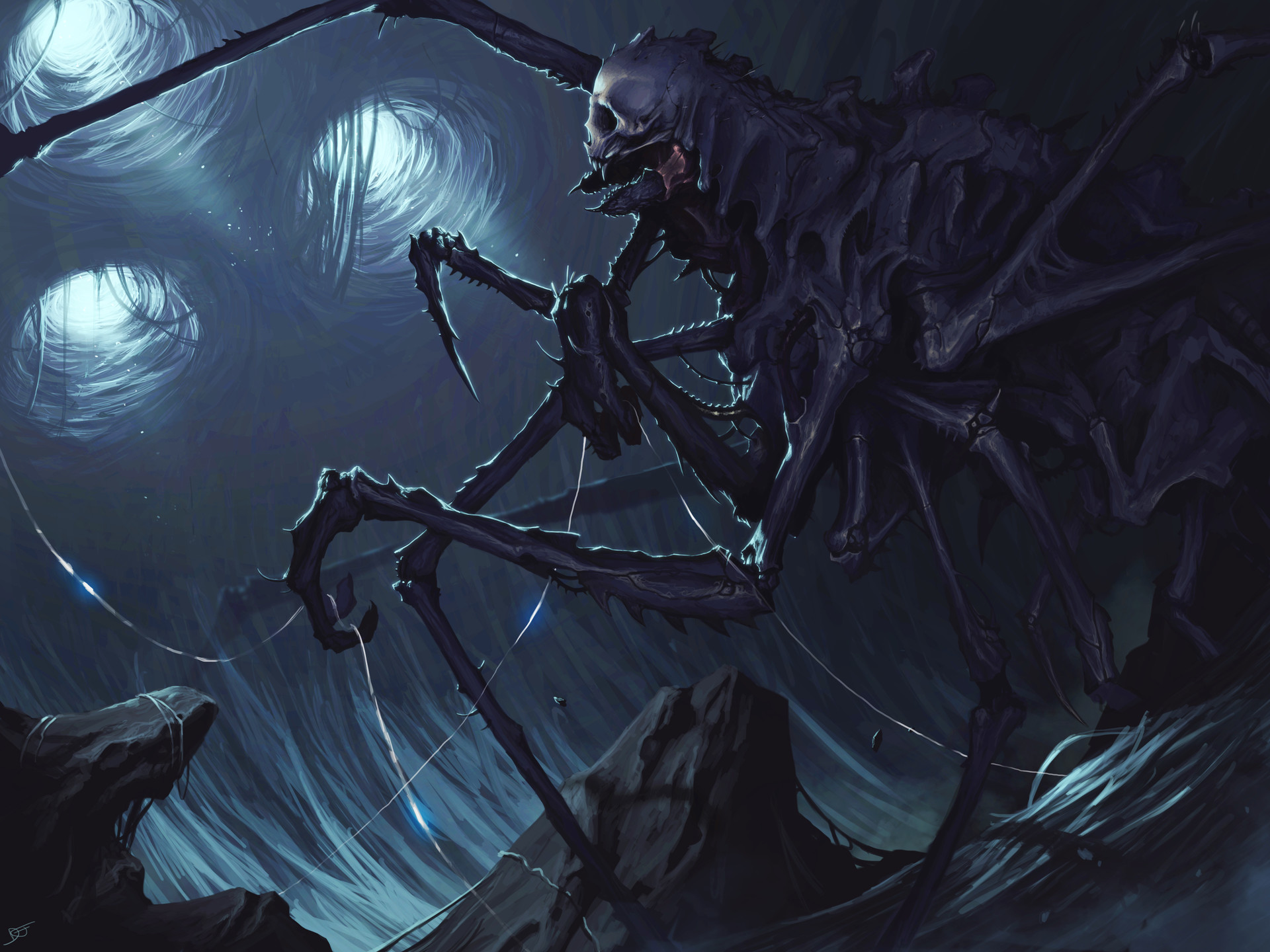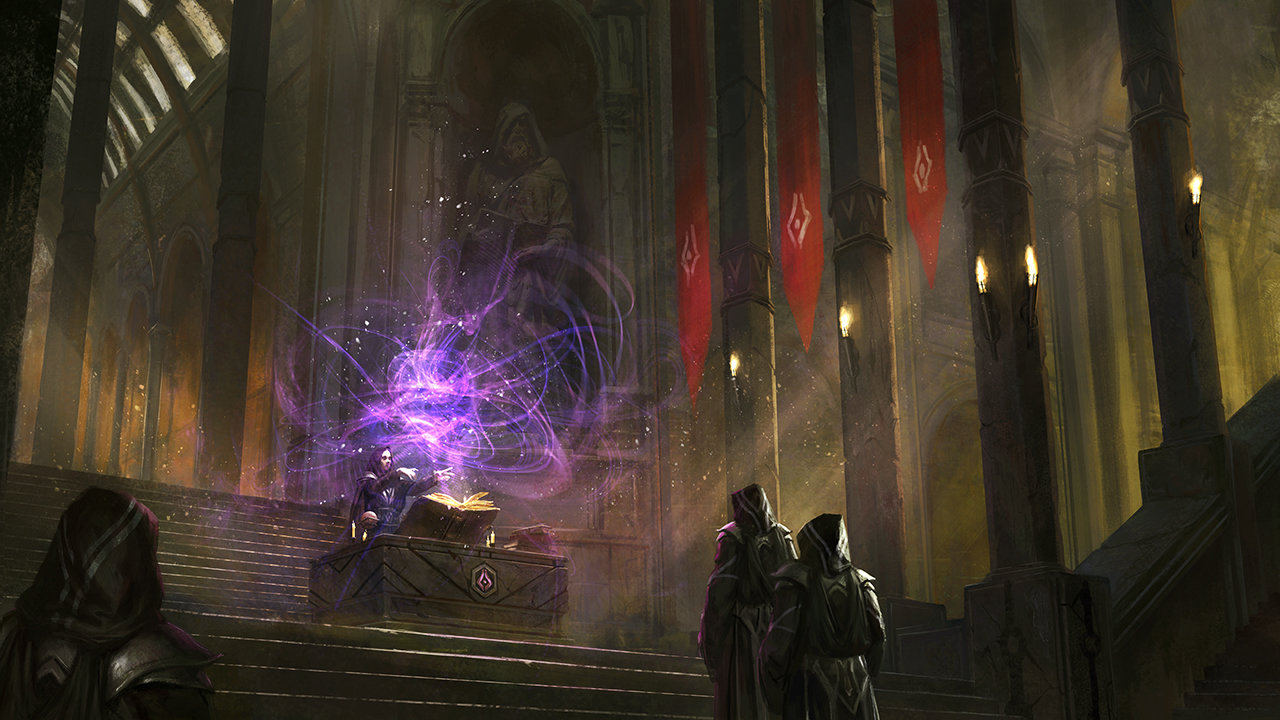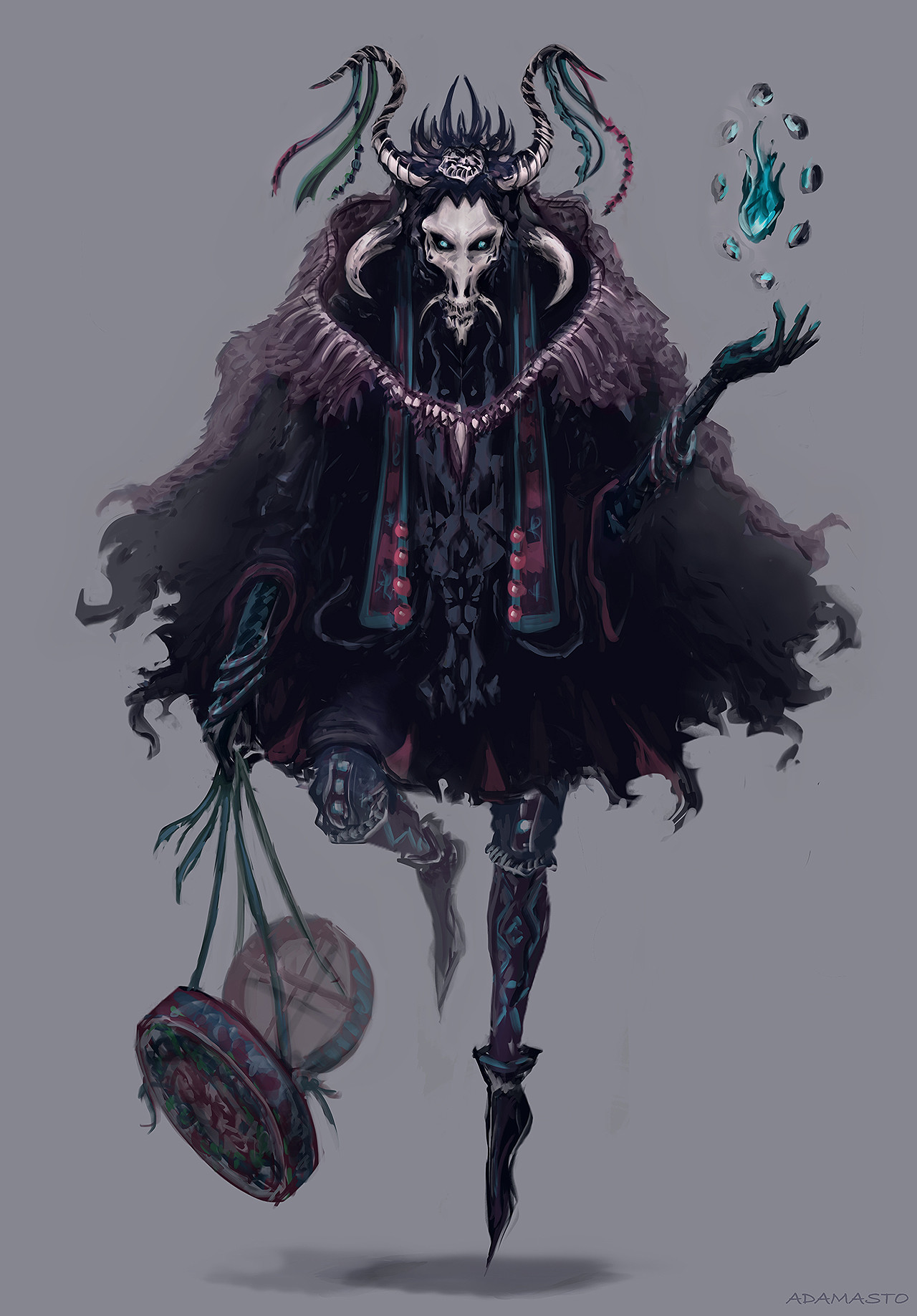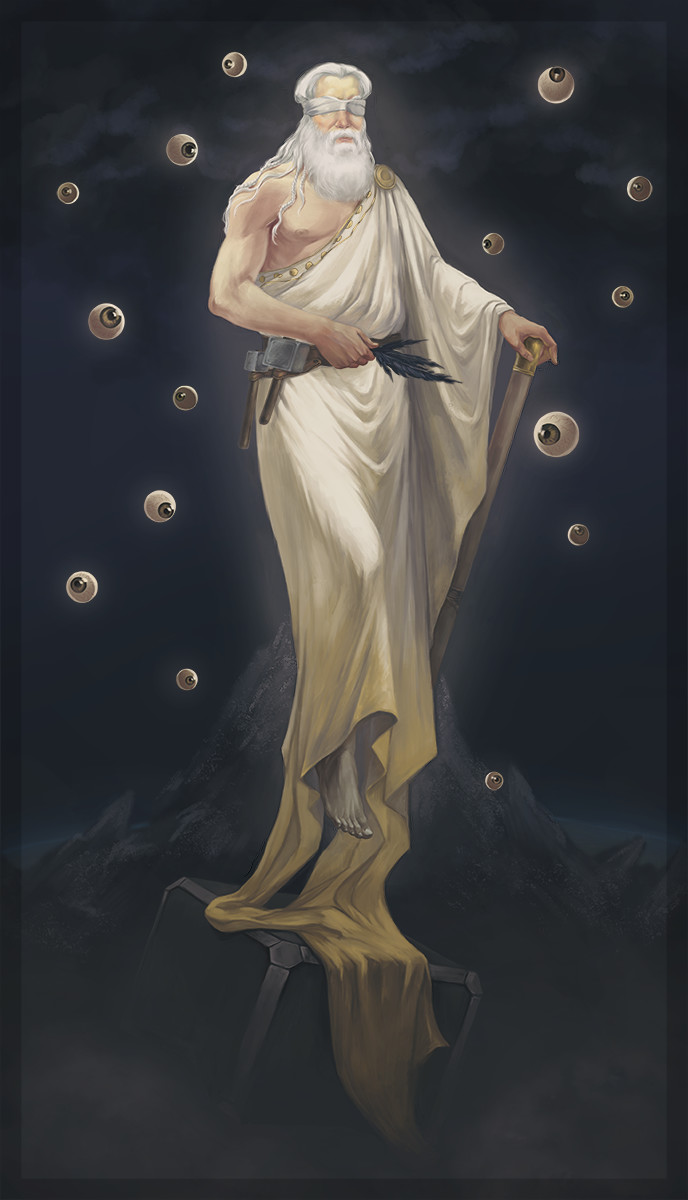"Gold is no metal, it is life. Gold is food in people's bellies, the strength in a soldier's arm, the foundation of thrones and the slayer of kings. Gold, my flock, is power." - Theodric Kolemnos, High Usurer of the Gilded House
The Gilded House is an ancient cult in my Egradus campaign who provide banking services across the known world. Their order is small but it is tightly wound into the fabric of most societies. You can deposit money in one of their temples, travel to the other side of the world and withdraw it (minus their fee, of course) without issue. Cult priests are also known as reliable and dependable legal witnesses for outsiders, despite the cult's bribery-laden, Byzantine internal politics.
The majority of the initiated are kept into the dark as to the inner workings of the temples, but all of them are ancient structures often out of place with the newer buildings surrounding them. Several thieves claim to have pilfered from the Gilded Houses (which they say are filled with horrific traps, wards and arcane servants), but none have come close to even setting foot in the Vault - the monolithic seat of power of the High Usurer, who heads the cult.
The cult itself claims to have invented many things inspired by their divine patron. Among these are bribery, coins, luck, trade, locks, slavery, chains and numbers.
The Lucre Uncounted is often referred to as Auric, God of Coin, by those who are not initiated. To a Mystic it appears as a giant pair of balanced scales wrought from pure light - on one side is an infinite stack of skulls of both of known and unknown races, and on the other is an infinitely heavy gold coin. Wealth without measure falls from the sky around it.
 |
| Credit, Luke Valentine |
Mystic: Lucre Uncounted
You are a disciple of Lucre Uncounted, your actions need no explanation.
Additional Starting Equipment: 1d6gp, light armour, shield.
Perk: You instantly know the market value of items you touch.
Drawback: You must Save when selling valuables or the Lucre Uncounted pilfers d100% of your share. You still gain the full amount of XP for selling treasure. This occurs even if party members or agents sell your share for you. All is held in account by the Lucre Uncounted.
Minor Miracles:
1. You can spend a full action to absorb one gold piece into your flesh and restore 1d6 HP.
2. You can fix the result of a coin toss with a glance.
3. You can read any language, so long as it is inscribed on a coin or statement of account.
Liturgies
The Liturgies of your faith are a contextual guide to the levels of power you can call upon. If you attempt to call upon a power of a higher level Liturgy then your Invocation roll is made with 2 Banes.If you attempt to call upon the Liturgy of a power beyond your level then you must spend a number of Favour points equal to double the difference. These points cannot be used to reroll dice, you must spend additional points on top of this.
First Liturgy
In the order of controlling coins, detecting metals, secreting treasure, tarnishing lustre, collecting debts, affecting the perception of value.
Second Liturgy
In the order of placing minor wards, setting and breaking locks, comprehending languages, spiritual loans, taking and binding oaths.
Third Liturgy
In the order of shaping metal into new forms, manifesting an aspect of pure wealth, placing major wards, restraining thieves and debtors.
Fourth Liturgy
In the order of summoning an divine mantle of opulence, forming an impenetrable barrier.
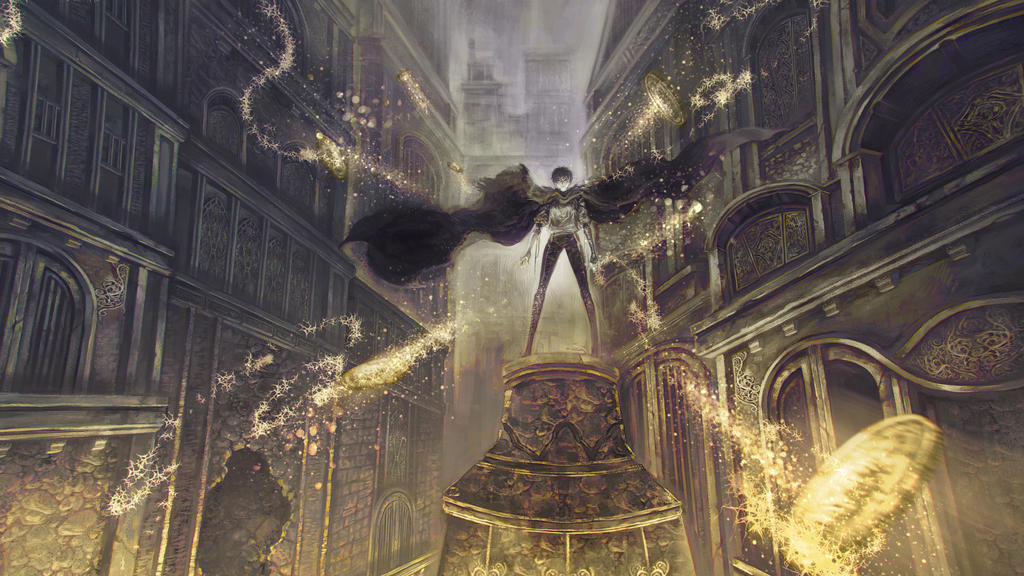 |
| Credit, watermother2004 |
Invocation
When you wish to Invoke a Miracle, declare the amount of Favour you are investing (if any) and roll 4d6. Each point of Favour allows you to reroll a die; you can reroll the same die multiple times and stop early, if you wish, but you must abide by the final result:
| 4d6 | Invocation |
|---|---|
| 18-24 | Success. |
| 15-17 | Minor Devotion - the Invocation requires something immediately obvious that would please the Lucre Uncounted, or roll on the Minor Devotion table. |
| 13-14 | Major Pact - you must agree to undertake a quest for the Lucre Uncounted in order for the Invocation to succeed. If you have already agreed to one and it has not been fulfilled then the Invocation fails. |
| 07-12 | Inopportune Favour - you are honoured with a manifestation of the Lucre Uncounted's blessing, though the timing is poor. Roll on the Duration table, reducing the roll by 1 for each point of Favour spent. You gain d4 points of Favour. |
| 04-06 | Brilliant Manifestation of Divinity - your body twists into a terrible avatar of the Lucre Uncounted, under the GM's control. Roll on the Duration table. At the end, Save or be rendered irrevocably insane by the experience. |
Favour
Gain Favour with the Lucre Uncounted by performing actions that please them. The following is a non-exhaustive guide:
1 Point
- Apprehend a debtor to the Gilded House.
- Sacrifice wealth to the Lucre Uncounted.
- Deliver fair judgement from a position of authority, or court bribes when adjudicating among the faithful.
- Sacrifice wealth to the Lucre Uncounted.
- Deliver fair judgement from a position of authority, or court bribes when adjudicating among the faithful.
5 Points
- Uncover a lost cache of great wealth.
- Gild a live sacrifice in sanctified gold and inscribe upon them runes of offering and benediction.
- Accrue wealth through a poorly worded contract or agreement.
- Gild a live sacrifice in sanctified gold and inscribe upon them runes of offering and benediction.
- Accrue wealth through a poorly worded contract or agreement.
15 Points
- Convince a treasure-hoarding creature to join the Gilded House as a willing convert.
- Uncover and restore a hidden or lost Gilded House.
- Uncover and restore a hidden or lost Gilded House.
 |
| Credit, Jonathan Carpenter |
The Unknowable Mind of the Lucre Uncountable (d20)
The minds of the gods are unknowable to frail mortals. Roll here when instructed on the Benevolence table in the core Mystic class:
1. The ritual fails and the target's blood flares like molten metal, inflicting 1d4 damage.
2. The ritual succeeds, but the target's movements jingle loudly as if they were carrying sacks of treasure - roll on the Duration table.
3. The ritual fails, and the target's skin becomes silvery and reflective - roll on the Duration table. Any beneficial magic cast upon the target will be reflected upon a random target within 50'.
4. The ritual succeeds, but the Lucre Uncounted blesses the target and turns one of their arms into solid gold. It still functions as a normal arm but has all the advantages of being metal. It counts as an Encumbering item.
5. The ritual fails and the target's bones turn to lead – roll on Duration table. Their DEX is halved for the duration.
6. The ritual succeeds, but the target's irises are turned a deep copper. They can forever pick out currency as smouldering embers, even in complete darkness.
7. The ritual fails, and the target is struck by a torrential shower of assorted coinage, suffering d6 damage. The coinage disappears a few seconds after it has struck the target.
8. The ritual succeeds, but the target's feet are turned to lead. They are otherwise normal and the target suffers no ill effects from the material, but their Movement speed is halved and their feet count as Encumbering.
9. The ritual succeeds, but the Mystic suffers d6 damage as furious sparks of molten metal erupt from the target.
10. The ritual succeeds, but one of the target's fingers is transformed into an iron key. They may declare that it fits perfectly into a single lock - the key-finger will fit only that lock. They can attempt to file the key and make alterations, but must make a successful DEX check or suffer d6 damage.
11. The ritual fails, and the target continually utters random numerals – roll on the Duration table.
12. The ritual succeeds, but their limbs become weak and their strength is sapped - their STR is halved. Every night a burning figure holding a struggling, pale copy of the target appears before them, demanding payment of d100 x10gp. Once this is paid their STR is restored.
13. The ritual fails, and a pair of heavy black iron manacles seal themselves around the target's wrists. They suffer 2 Banes on all DEX rolls and any attempts to remove the manacles cause them to flare white hot and inflict 1d6 damage to anyone in contact.
14. The ritual succeeds, but countless tiny gems and metallic extrusions erupt through the subject's skin. Their Defence is improved by 2 due to the added durability, and whenever they are struck in combat there is a 2-in-6 chance of d20sp in valuable materials being chipped loose. Attempting to prise gems out willingly results in unimaginable pain.
15. The ritual fails, and the target is branded with a visible mark that all coins fear. The target must succeed on a DEX check whenever handling coins or any coins within 5' of them will begin to roll away, aiming for drains, small cracks and other nooks and crannies.
16. The ritual succeeds, but the target vomits up litres of molten slag. They must Save vs CON or suffer 1d4 damage - roll on the Duration table, with a new Save at each increment.
17. Everyone within 30' must Save or be bound by adamantine chains and dragged off through portals - roll on the Duration table. In their wake are slips of paper and parchment scratched in a harsh, infernal tongue confirming their status as indentured servants. No matter how long is rolled, those who failed their Save return feeling like they have spent several years away but cannot recall anything other than mere flashes.
18. The ritual succeeds, but the target notices a patch of golden skin on the back of their hand which ever so slowly spreads. The target must Save vs CON every day to prevent their skin from changing further, failure imposes a cumulative -2 DEX penalty as their skin and joints begin to harden. To completely recover they must Save 3 times in a row, with a failure returning them to their initial condition. If they fail 3 times in a row then they are immobilised as a solid gold statue, still living on the inside. Any healing from a Mystic of the Lucre Uncounted during this time will actually progress the condition.
19. The ritual fails, and the Mystic must Save or suffer 1d10 damage as a burning lash scourges them to the bone.
20. The ritual succeeds, but the target must Save the when sleeping for the next night. If they fail then the party awakens to find the target's belongings neatly organised with a concise statement of accounts concerning their soul resting on top.

